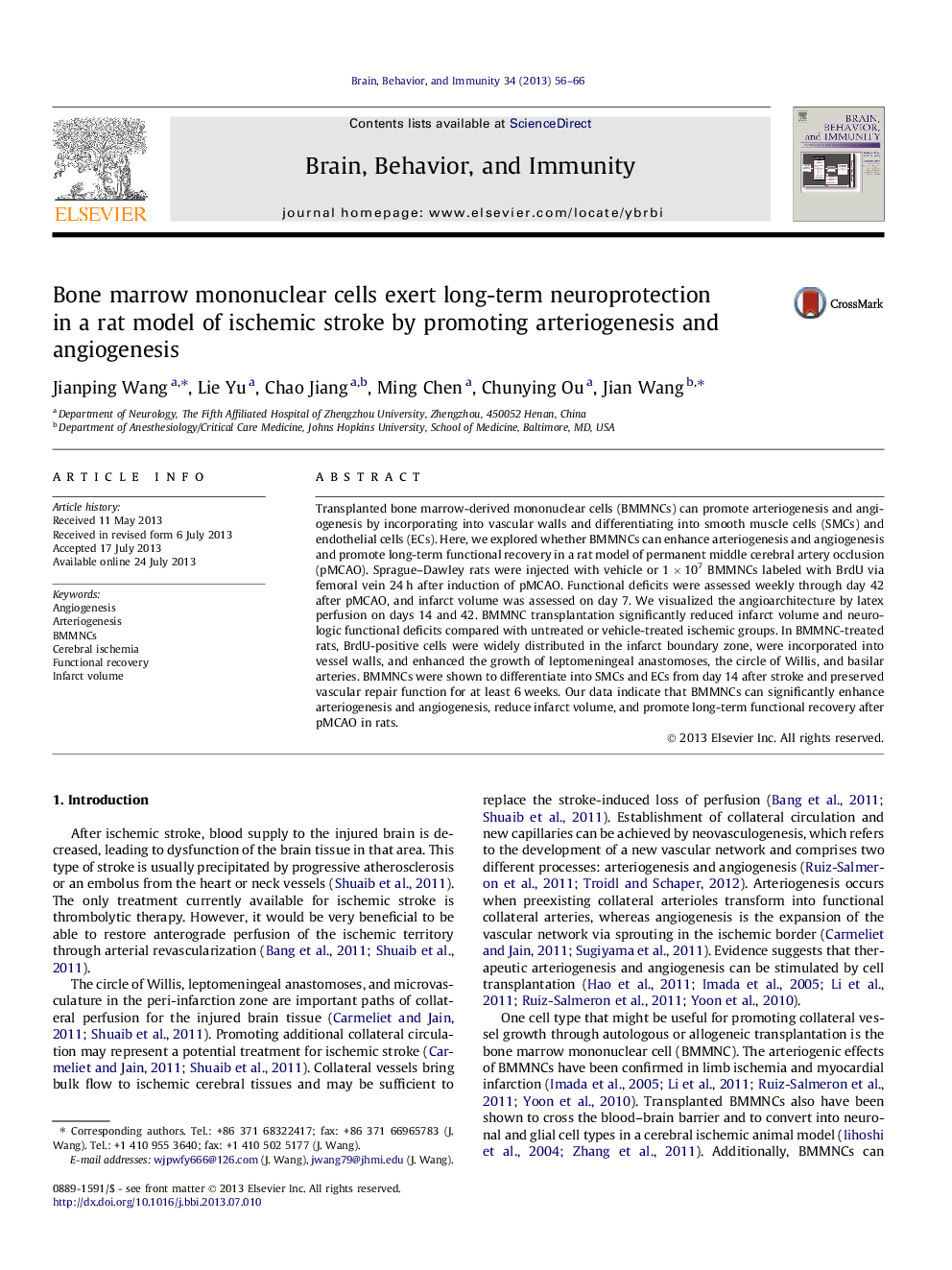| Article ID | Journal | Published Year | Pages | File Type |
|---|---|---|---|---|
| 7281823 | Brain, Behavior, and Immunity | 2013 | 11 Pages |
Abstract
Transplanted bone marrow-derived mononuclear cells (BMMNCs) can promote arteriogenesis and angiogenesis by incorporating into vascular walls and differentiating into smooth muscle cells (SMCs) and endothelial cells (ECs). Here, we explored whether BMMNCs can enhance arteriogenesis and angiogenesis and promote long-term functional recovery in a rat model of permanent middle cerebral artery occlusion (pMCAO). Sprague-Dawley rats were injected with vehicle or 1Â ÃÂ 107 BMMNCs labeled with BrdU via femoral vein 24Â h after induction of pMCAO. Functional deficits were assessed weekly through day 42 after pMCAO, and infarct volume was assessed on day 7. We visualized the angioarchitecture by latex perfusion on days 14 and 42. BMMNC transplantation significantly reduced infarct volume and neurologic functional deficits compared with untreated or vehicle-treated ischemic groups. In BMMNC-treated rats, BrdU-positive cells were widely distributed in the infarct boundary zone, were incorporated into vessel walls, and enhanced the growth of leptomeningeal anastomoses, the circle of Willis, and basilar arteries. BMMNCs were shown to differentiate into SMCs and ECs from day 14 after stroke and preserved vascular repair function for at least 6Â weeks. Our data indicate that BMMNCs can significantly enhance arteriogenesis and angiogenesis, reduce infarct volume, and promote long-term functional recovery after pMCAO in rats.
Related Topics
Life Sciences
Immunology and Microbiology
Immunology
Authors
Jianping Wang, Lie Yu, Chao Jiang, Ming Chen, Chunying Ou, Jian Wang,
